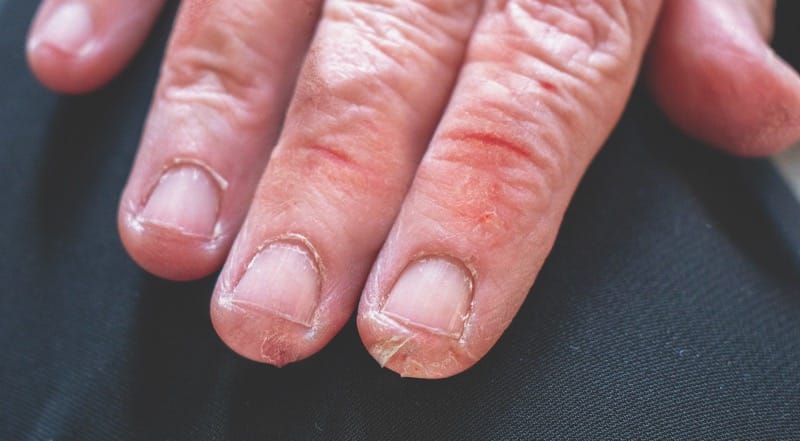Eczema: a refresher
Eczema (also known as dermatitis) is a non- contagious, inflammatory dry skin condition that can affect people from early infancy to old age and it is incredibly common.
The National Eczema Society estimates that the most common form, atopic eczema, affects one in five children and one in ten adults in the UK.1 Eczema is particularly common in infants, and 15% of children have it.2 About 60% of those with eczema will experience symptoms by the age of one, and another 30% will experience symptoms by the age of five.3 Although eczema most commonly shows up before the age of five, adolescents and adults can also develop the condition. However, it is unusual for someone to develop it for the first time after the age of 60, so this should be investigated as it may be linked to a more serious underlying condition.
Eczema is a complex condition. It is typically an episodic disease of flares (exacerbations, which may occur as frequently as two or three times each month) and remissions; in severe cases, disease activity may be continuous.4 Genetic predisposition, skin barrier dysfunction, environmental factors and immune system dysfunction are thought to play a role in its development.
It can be worsened or ‘triggered’ by exposure to many different things, including allergens such as pet dander, dust mites or pollen. Other common triggers include specific foods, cosmetics, soaps and detergents. Exposure to perfumes and cleaning products can also irritate eczema. For some people, weather changes (especially heat or dry winter air), illnesses such as the common cold, or even stress may make eczema worse.

To continue reading this article, please
sign in or
register.